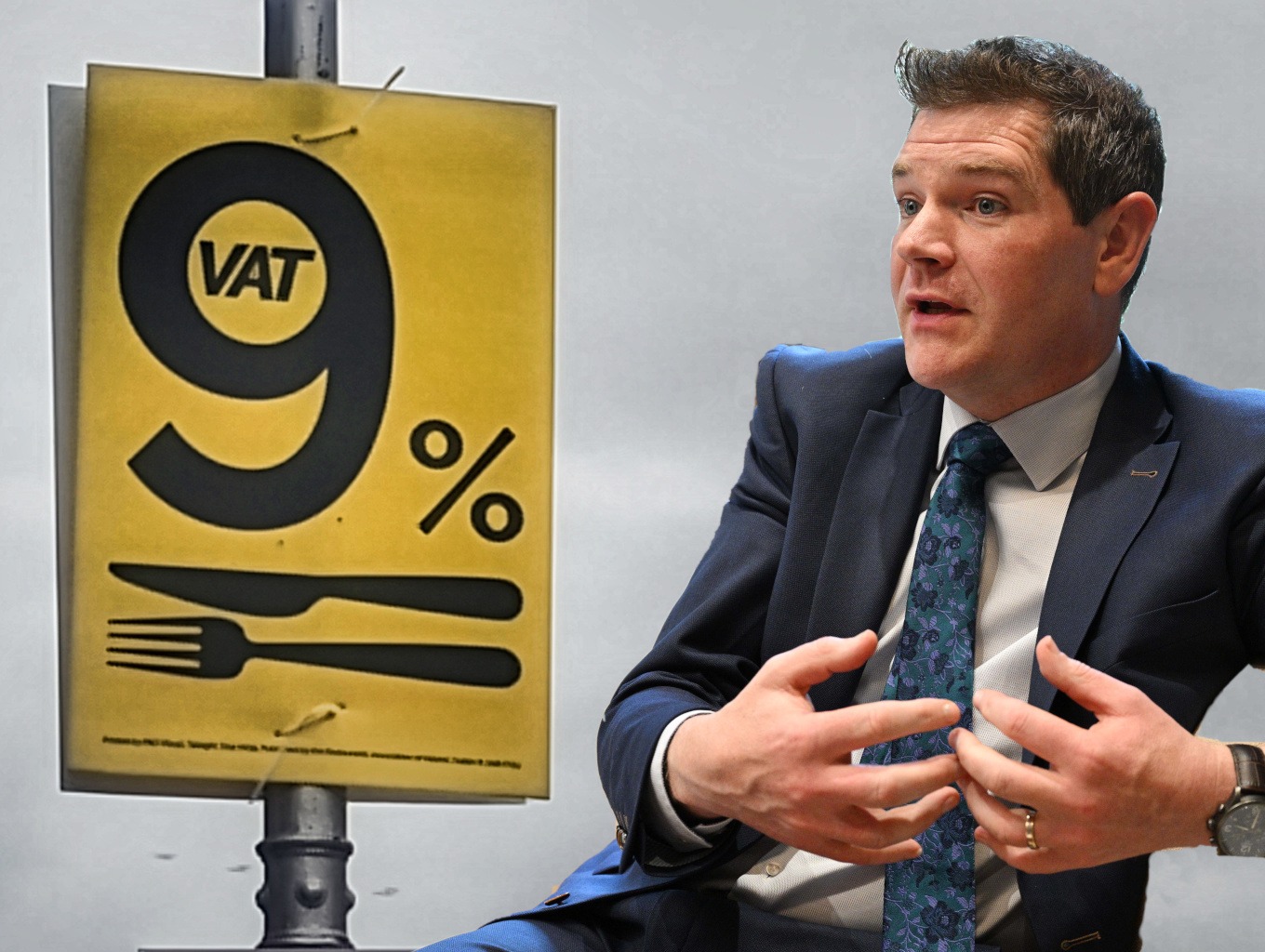This time last year, Peter Burke was one of three junior Fine Gael ministers who signed a surprise opinion article in the Irish Independent, writing: “A full-time worker on an average wage of €52,000 should get a tax break of more than €1,000 in October’s Budget. That is an extra €1,000 in your pocket after taxes.”
The explosive kite strained relations with the signatories’ largest coalition partner Fianna Fáil and achieved the desired effect: Remind voters that despite the long-standing partnership between the two centrist parties, from confidence and supply agreement to programme for government, there was still a difference between them. Fine Gael stood for lower taxes and Fianna Fáil for higher spending.
When all was said and done, that average earner got less than €800 in Budget 2024.
By the time he sat down with me for an interview this week, Burke had been promoted to the cabinet table as minister for enterprise, trade and employment. But he hasn’t lost his taste for late-May budget jousts with Fianna Fáil.
In his new office on Dublin’s Kildare Street, I pointed out to him the election-like poster advertising a return to the reduced nine per cent Vat rate erected by the Restaurants Association of Ireland immediately outside his window.
Over €400 million annually
Burke correctly placed any decision on the tax cut from the current 13.5 per cent in the hands of his Fianna Fáil colleague, Minister for Finance Michael McGrath. He then proceeded to develop a series of arguments against the proposal.
The most pointed of those is reminiscent of last year’s inflammatory Independent article. Once the Government identifies the fiscal space available for the budget in July, Burke said: “We have to be honest with people that if a change is made in relation to the nine per cent Vat rate, that will almost wipe out the income tax package for the budget.”
The reduced rate would cost the Exchequer over €400 million annually. At the going rate, this could buy a new children’s hospital in six years. If restaurateurs and hoteliers get their nine per cent Vat rate, this resource will again be unavailable to give middle earners the €1,000 tax break Fine Gael promised them one year ago, Burke is essentially warning.
The argument left a hospitality industry source puzzled after I contacted them following the interview. The sector’s business owners thought they had secured Fine Gael support for the Vat cut through Burke’s predecessor Simon Coveney.
While pushback against the measure is surprising from the enterprise minister, it is understandable from a Fine Gael perspective. There are more voters on the average salary than hotel or restaurant owners. With a series of elections on the horizon, one way for the party to differentiate itself from Fianna Fáil is, again, to prioritise tax cuts for them.
But voters are also clamouring for more spending, and Fine Gael is now deeply committed to massive investment in public infrastructure, as Burke pointed out in our interview. So, a difference factor with its Fianna Fáil frenemy might now lie in the allocation of limited tax breaks.
Burke’s budget bet
The minister took up his position mid-April and has until February at most to make his mark before the next general election. The budget looms large in this tight window and he told me he wanted to deliver a “very strong pro-business package” in October.
Business owners will be watching closely. In a remarkable series of columns that captured the attention of SME readers, Stuart has been modelling the rising business costs attributable to Government policies to offer better conditions to low-paid workers over the next two years.
His stylised profit-and-loss accounts for a typical pharmacy, neighbourhood supermarket, pub or restaurant, based on real-world data, have shown that most will be in the red in 2026 both in Ebitda and cash-flow terms, with only the supermarket barely breaking even.
Stuart has also assessed that the unconditional supports announced by Burke last month would make no significant difference to this reality. Cutting the Vat rate to nine per cent, however, would for restaurants.
Both he and the minister say that viability may improve for businesses that take advantage of more demanding measures, such as grants to improve energy efficiency.
But how much bandwidth do SME owners have to start this type of project when they are facing immediate cash-flow pressure and, as Burke admitted to me, appeared in some cases not to have the time to take the “two minutes” it takes to apply for the Increased Cost of Business Grant?
*****
Elsewhere this week, Tom conducted a public interview with the advertising giant Martin Sorrell at Dublin’s Tech Summit. The S4 Capital founder and former WPP boss highlighted the value of “first-party data” allowing unprecedented advertising personalisation and the areas where AI is going to shake up the advertising industry. Meanwhile, his comments on the importance of Ireland’s neutrality in Middle East diplomacy closely echoed those Burke made to me.
Francesca covered Professor Philip Nolan’s successful High Court challenge to his dismissal of by the board of Science Foundation Ireland, which lifted the curtain on alleged extraordinary intrigue at the top of the agency tasked with distributing €200 million in State funding for research every year.
In his first major scoop since joining The Currency as London Editor last month, Michael revealed the name of Stripe’s new chief executive for the UK. The online payment giant’s business in its second-largest market is now led by a pillar of its massive Dublin presence.


